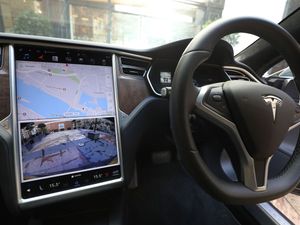Star comment: Make sure driverless future is a safer one
Our relationship with the road is changing. The advent of self-driving cars means we will interact with traffic and other drivers in a very different way. With good reason, therefore, the Highway Code is like to change to incorporate changes brought by a new era.

It is understandable that protections must be given to those who put their trust in self-driving cars. Yet the majority will be bewildered that the drivers of self-driving vehicles can, for instance, watch a movie instead of watching the road. For many, the idea of watching films while sat in traffic is bewildering. How can that possibly be safe?
Before we descend into panic, it’s worth remembering that there are no vehicles approved for self-driving on Britain’s roads yet. So these proposals, while undoubtedly a cause for debate, are not yet relevant. Nonetheless, it is a fascinating insight into the direction of travel for our roads - a glimpse into the future of motoring that is a long way removed from the reality many have grown up with.
Indeed, if the optimistic assessments from the likes of the RAC and government are to be believed, the arrival of self driving cars could make our road safer, more pleasant environments. We can watch with interest as experts put in place the relevant safeguards so that drivers of conventional vehicles and those behind the wheel of self-driving cars can co-exist in harmony. We need to move towards a greener, safer transport system to reduce accidents for all. Progress might mean watching the latest movie while on the road – what matters most is that it also means all drivers are safer.
Online safety is a growing concern for many. Parents often feel powerless as their children disappear into the virtual world - and the dangers it poses to young, impressionable minds. Moves to address these concerns are therefore to be welcomed. The digital space all too often feels like the Wild West where predatory and nefarious individuals put youngsters at harm.
However, there is much more to be done. For years now, the internet has been a dangerous environment with no rules or regulation. Turning that situation around will be a challenge. There are many vested interests. None, however, should be higher than ensuring the safety of all internet users. Legislation to force such operators as Meta – formerly Facebook – and Google to abide by a duty of care to users cannot arrive a moment too soon. We must drive out those who would do harm to youngsters.





